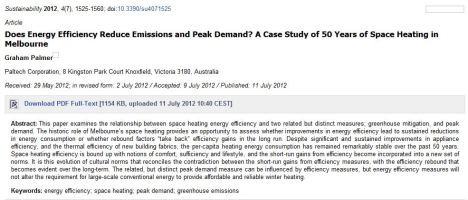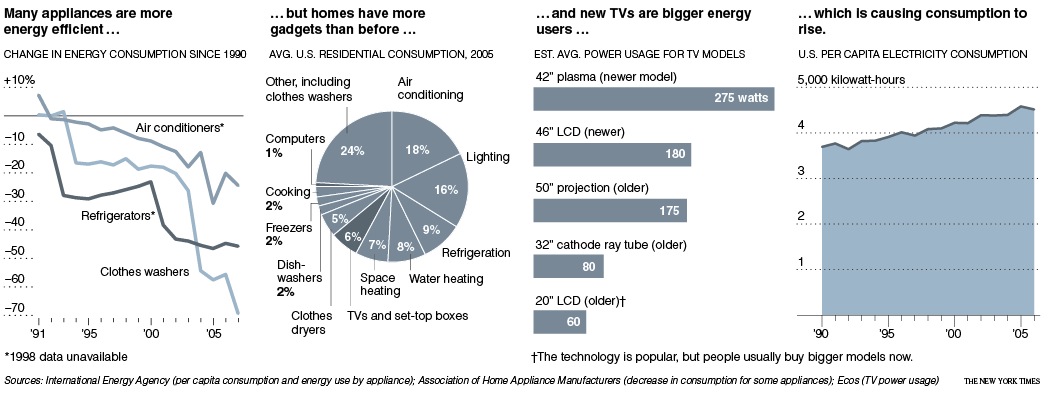Guest Post by Graham Palmer. Graham is an industrial engineer and energy commenter from Melbourne. For another BNC post featuring his work, see Coal dependence and the renewables paradox.
This post summarises the findings of a paper just published in the peer-reviewed journal Sustainability by Graham Palmer, entitled “Does energy efficiency reduce emissions and peak demand? A case study of 50 years of space heating in Melbourne“.
Energy efficiency is a key component of climate change policy, and is promoted as a low cost means to reduce greenhouse emissions and reduce peak demand. Energy efficiency is also a key component of the “soft energy path”, originally articulated by Amory Lovins in 1976 in his famous article in Foreign Affairs as a solution to energy supply concerns and declining resources, then later adopted as a solution to climate change.
Such is the power and intuitive appeal of the idea of energy efficiency that it has been almost universally adopted as a key plank of the “sustainability project” by environmental NGOs, green parties, and large sections of Government. Yet Jevon’s Paradox, or the energy efficiency rebound effect, suggests that some, or all, of the gains of energy efficiency are “taken back” in the long-run, and has been passionately debated since the 1980s.
The most common explanation for the failure to reduce energy is that we haven’t tried enough; therefore the solution should be increased regulation and greater stringency, along with greater support for efficiency programs. But a historical examination shows that an improvement in efficiency of Melbourne’s space heating has in fact been sustained and significant, yet energy demand continues to grow. An examination of the specific case of Melbourne’s space heating over a 50-year time-scale provides an opportunity to reconcile the contradiction between the short-run gains from efficiency at a household level, with the irrefutable increase in aggregate energy consumption over the long run. Melbourne’s winter heating is an important case study because the heating load is possibly the single largest peak energy load on any energy source in Australia – the demand on the gas network is regularly 10,000 to 15,000 MW (gas) – so any de-carbonisation plan needs to effectively deal with it.
The paper has two main findings.
Filed under: Emissions, Policy, Renewables | 2 Comments »






.png)







